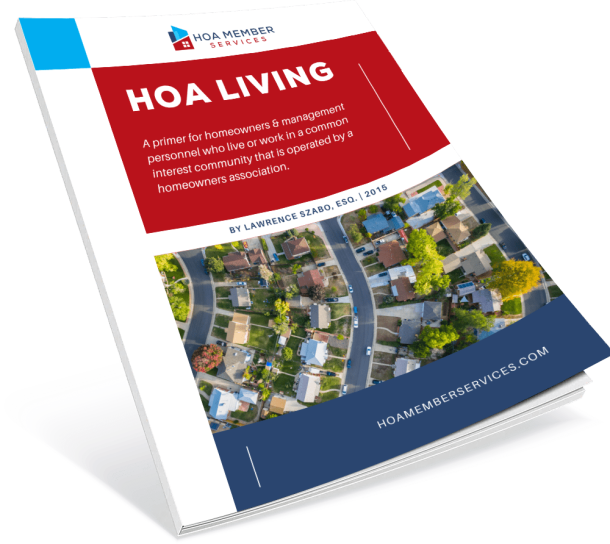Ever wonder if the people making the rules in your neighborhood are pocketing a paycheck for their efforts? It’s a fair question — and one that sparks curiosity (and sometimes concern) among homeowners.
After all, the decisions made by HOA boards can directly affect your dues, your home’s appearance, and your property value. So it’s only natural to ask: Do HOA board members get paid?
Well, in most cases, no — they serve on a volunteer basis. But there are exceptions worth understanding.
In this article, we’ll walk through exactly how compensation works (or doesn’t) for HOA board members, what the bylaws say, and why serving on a board can be rewarding even without a paycheck.
Whether you’re a homeowner, potential board member, or just HOA-curious, you’ll leave with a clearer picture of what’s really behind the boardroom doors. Let’s take a step back and understand what HOAs are — and who’s actually running the show.

What Is an HOA and Who Runs It?
A homeowners association (HOA) is a community association that exists to protect property values and maintain shared spaces. Think of it as a neighborhood’s built-in support system.
At the heart of every HOA is its community association board. These directors (yes, including the HOA president and vice president) are elected by HOA members to make decisions on the community’s behalf.
They’re responsible for:
- Enforcing rules and governing documents
- Managing budgets and financial records
- Hiring vendors and sometimes even a property management company
Most HOA board members serve on a volunteer basis, with no financial compensation.
What Do HOA Board Members Actually Do?
Serving on an HOA board isn’t just about enforcing pool rules or deciding fence colors. It’s a real commitment that comes with weighty responsibilities—and often, no paycheck.
Here’s what HOA board members handle:
- Overseeing financial matters like budgeting and reserve funds
- Maintaining common areas (think landscaping, lighting, or amenities)
- Enforcing the governing documents and community rules
- Representing the community’s behalf in decisions, big and small
- Holding regular board meetings to address issues and concerns
They also take on a fiduciary duty — a legal obligation to act in the best interest of the community, not themselves. That includes paying dues just like any other member.
If you’re curious about specific responsibilities, Nolo’s guide on HOA boards lays it all out in plain terms. It’s a helpful resource for both residents and future board members.

Do HOA Board Members Get Paid? The Short Answer
Here’s the truth: HOA board members get a lot of responsibilities, but typically, they don’t get paid. The vast majority of homeowners’ association board members serve on a volunteer basis. That means no salary, no bonuses, and often, not even special perks.
Why? To avoid conflicts of interest and ensure every decision is made for the community’s benefit, not personal gain.
Some community association bylaws may allow for board member compensation or reimbursements — say, for mileage or supplies — but that’s the exception, not the rule.
There are legal considerations, too. Members get paid only if it’s clearly outlined in the association’s bylaws and allowed by state laws.
Bottom line? If you’re joining an HOA board, expect to contribute your time, not collect a paycheck.
When Board Members Do Get Paid
While it’s rare, there are circumstances where board members do get paid — but it’s never as simple as cutting a check.
Some community association boards offer small stipends or reimbursements for approved expenses like travel, printing, or meeting space. These aren’t considered financial benefits, but they help cover costs tied directly to board service.
In unique cases, especially in large or complex HOAs, HOA board directors may receive compensation. But this must be clearly stated in the association’s bylaws and comply with applicable state laws.
It’s also important to weigh the risks. Paying board members can raise questions about bias, ethics, or improper use of funds.
The Council of Foundations offers insight on governance trends, including when it’s appropriate to compensate directors.
Ultimately, the goal is transparency and ensuring decisions always reflect the best interests of the HOA community.

What Counts as Compensation?
When people ask, ‘Do HOA board of directors get paid?’, it’s not always about a paycheck — compensation can take different forms.
While a salary is rare, some incentives for HOA board members may include:
- Reimbursements for mileage, supplies, or meeting expenses
- Special perks, like discounts on community amenities
- Stipends, if outlined in the association’s bylaws
But there’s a fine line. Even small financial benefits must be transparent and approved to avoid conflicts of interest.
A good rule: if it’s not clearly authorized in the governing documents, don’t assume it’s allowed. Inappropriate or hidden compensation could damage trust and violate state laws.
Remember, the focus should always be on serving the HOA community, not personal gain.

Why Most Board Members Choose to Serve Anyway
While the financial benefits of being on an HOA board are little, many people still step up to join the HOA board. Why? Because the role can be richly rewarding in ways that go beyond money.
Here’s what draws good HOA board members to serve:
- A sense of servant leadership — helping neighbors and shaping the community
- A chance to improve property values and maintain quality of life
- An opportunity to build leadership skills in budgeting, communication, and planning
- The satisfaction of making decisions that benefit HOA members
These personal and professional gains often outweigh the absence of financial compensation.
For many, it’s about impact, not income. And that mindset keeps the HOA community strong and well-managed.
What the Bylaws Say About Payment
When it comes to whether HOA board members get paid, the answer often lies in one key place: the association’s bylaws.
These governing documents spell out what’s allowed and what’s not. If board member compensation is permitted, it must be explicitly stated in the bylaws and aligned with state laws.
Here’s what bylaws typically include:
- Whether board members get stipends or reimbursements
- Rules around expense reporting and approval
- Limits on financial benefits to avoid conflicts of interest
If the bylaws are silent on compensation, assume it’s not allowed. Ignoring them could lead to legal issues or loss of trust among HOA members.
Need help reading your community’s bylaws? This K&R Premier resource on HOA bylaws breaks it down clearly for homeowners and potential board candidates.

Risks and Responsibilities of Paying Board Members
If a community association board decides its board members get paid, that choice carries weight and risk. Offering financial benefits may seem fair, but it opens the door to conflicts of interest, strained relationships, and increased scrutiny from HOA members.
Risks include:
- Other board members questioning motives
- Residents challenging board decisions or fee increases
- Potential violations of state laws or the association’s bylaws
Even approved compensation must be transparent and documented. Boards should consult legal counsel and disclose all financial matters to the community. In some cases, it may be better to hire professionals for complex roles rather than compensate volunteers.
Ultimately, clear communication and accountability are essential. When board members serve, the focus should remain on the community, not personal income.
How to Make Board Service More Appealing (Without a Paycheck)
Even if HOA board members aren’t paid, communities can still offer meaningful incentives for HOA board members to stay engaged and motivated.
Here’s how to attract and retain good board members:
- Offer training or leadership workshops to build leadership skills
- Publicly recognize their contributions at board meetings or in newsletters
- Provide access to expert advice through a property management company
- Reimburse legitimate expenses as permitted in the governing documents
Some associations also offer non-cash perks, like priority parking or reserved clubhouse space, so long as these don’t create ethical concerns.
Creating a culture of respect and teamwork matters more than money. Transparency, support, and appreciation go a long way in encouraging participation.
For more ideas, the Foundation for Community Association Research outlines strategies to strengthen community governance without added cost.
When people feel valued, they’re more likely to serve well.

Final Thoughts
When it comes to compensation, the answer is clear for most: HOA board members serve on a volunteer basis. While a few associations offer stipends or financial benefits, these cases are rare, and must follow the association’s bylaws and state laws closely.
The real rewards? Building relationships, safeguarding property values, and developing lasting leadership skills. It’s about showing up for your neighbors and making decisions on the community’s behalf that create a lasting impact.
Want to learn more about how to serve your HOA community more effectively or ethically? Join us. As a member, you’ll gain access to tools, professional legal advice, and community-building strategies from industry management experts.
Whether you’re a current board member or exploring the idea, our resources help you lead with confidence and clarity. Become a member today and serve smarter, not just harder.


